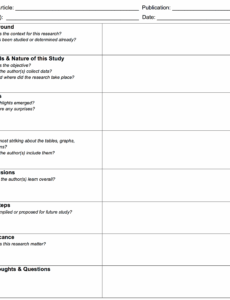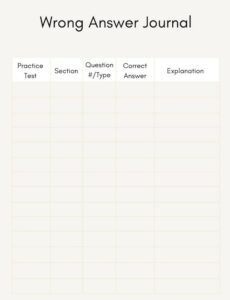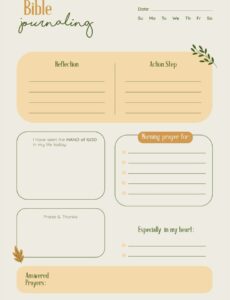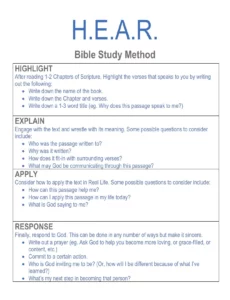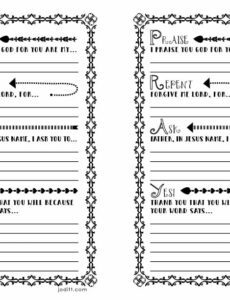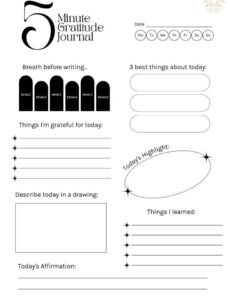Embarking on a journey of learning often feels like navigating a vast ocean, with new information and experiences constantly washing ashore. It is easy to get caught up in the current, moving from one assignment to the next without pausing to truly process what you have encountered. This is where the simple yet profound act of reflective journaling comes into play, offering a quiet harbor for your thoughts and a powerful tool for deeper understanding. It transforms passive learning into an active, engaging dialogue with your own mind.
For students across all disciplines and levels, from high school to university, integrating reflection into your routine can dramatically enhance your academic performance and personal growth. It is not just about writing down what happened, but about exploring the “why” and “how” of your experiences, connecting dots, and uncovering insights that might otherwise remain hidden. A well-structured reflective journal template for students can make this process accessible, consistent, and incredibly rewarding.
Why Reflective Journaling is a Game-Changer for Your Studies
Reflective journaling is far more than just keeping a diary; it is a systematic approach to learning that fosters critical thinking and self-awareness. When you take the time to reflect on your lectures, readings, discussions, or practical sessions, you are actively engaging with the material on a deeper level. This process helps solidify new knowledge, making it less likely to be forgotten and more readily available for future application. It bridges the gap between simply receiving information and truly internalizing it, turning raw data into meaningful understanding.
Beyond academic retention, reflection empowers you to identify your learning styles and preferences. You might discover that you grasp concepts better after a certain type of activity, or that particular study methods are more effective for you than others. This self-knowledge is invaluable, allowing you to tailor your learning strategies to maximize your potential and address areas where you might be struggling. It’s like having a personalized guide to your own cognitive processes, helping you navigate complex subjects with greater confidence.
Moreover, the act of articulating your thoughts and feelings about your learning experiences can significantly improve your problem-solving skills. When you write about challenges you faced in a project or a difficult concept in a course, you are forced to analyze the situation, break it down, and consider different perspectives. This practice builds resilience and adaptability, crucial qualities for both academic success and future careers. It moves you from merely experiencing difficulties to proactively learning from them.
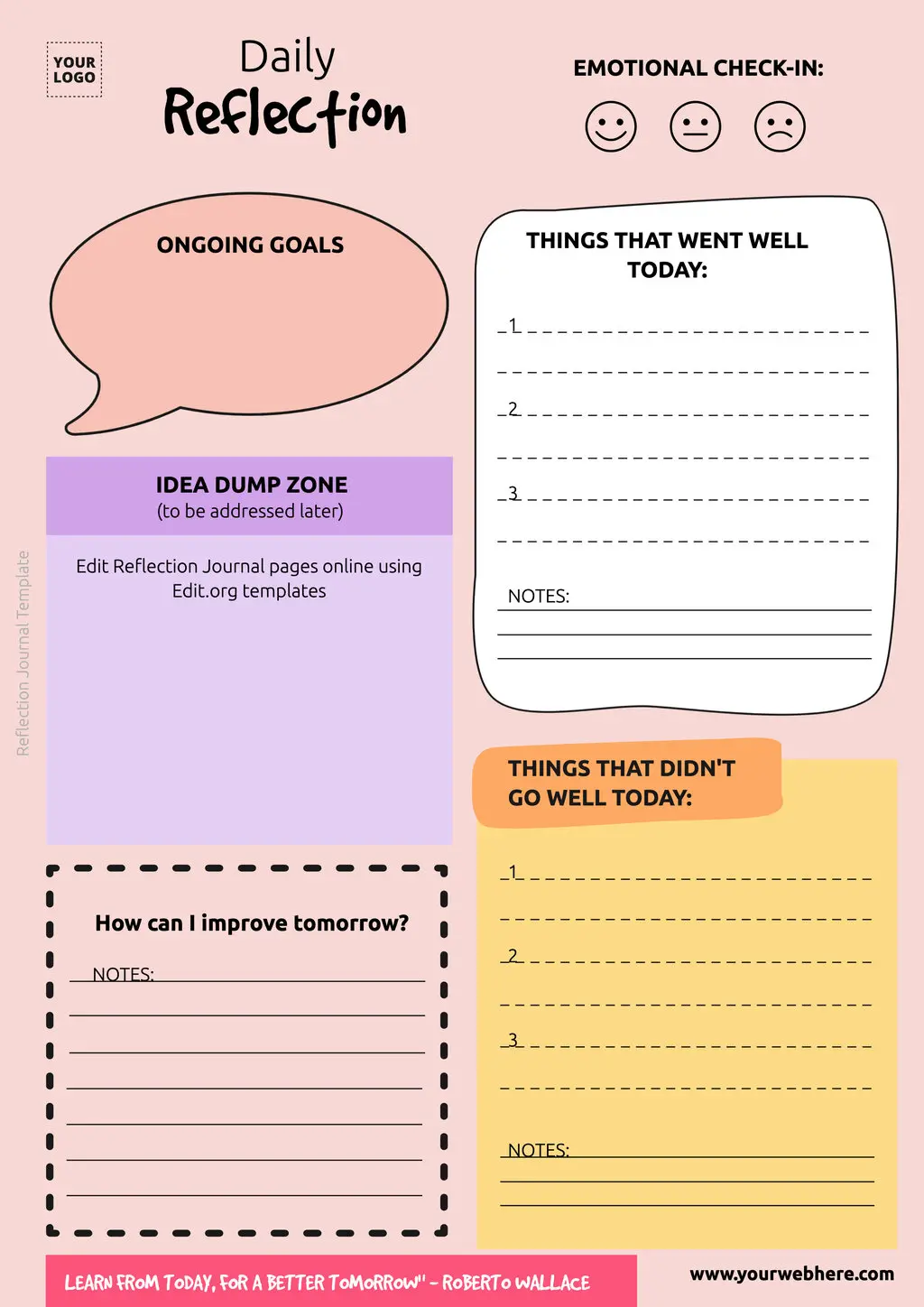
Key Elements of an Effective Reflective Journal
To truly harness the power of reflection, a structured approach is incredibly helpful. A good reflective journal provides prompts that guide your thoughts, ensuring you cover all essential aspects of an experience. These elements encourage a comprehensive review, moving beyond surface-level observations to deeper analysis and future planning.
Here are some core components to consider:
- What happened? Describe the event, task, or learning experience factually.
- How did it make me feel? Explore your emotional responses – frustration, excitement, confusion, clarity.
- What did I learn from this? Analyze the insights gained, connections made, or theories understood.
- What will I do differently next time? Formulate an action plan based on your reflections to improve future performance or understanding.
By consistently engaging with these elements, you transform a simple notebook into a powerful engine for continuous improvement and profound learning, truly mastering your educational journey.
Crafting Your Own Reflective Journal Template for Students
While the concept of reflective journaling is universally beneficial, the actual practice becomes much easier and more effective with a clear structure. A reflective journal template for students provides this essential framework, guiding your thoughts and ensuring you address key areas of reflection without feeling overwhelmed by a blank page. It acts as a mental checklist, prompting you to delve into your experiences from various angles, from initial impressions to future actions.
The beauty of a template lies in its adaptability. You can start with a basic structure and then customize it to fit the specific demands of your courses, personal learning goals, or even your mood on a particular day. For instance, a student studying a science subject might include sections for experimental observations and hypothesis testing, while a literature student might focus more on thematic analysis and personal interpretations. This flexibility ensures that your journal remains a relevant and dynamic tool throughout your academic career.
When designing or choosing a template, think about the aspects of your learning you want to explore most deeply. Consider dedicating specific sections to different types of reflection. This could include sections for daily check-ins, weekly summaries, or specific project reflections. The more tailored your template is to your needs, the more valuable it will become as an instrument for personal and academic growth.
Here are some ideas for what a comprehensive reflective journal template might include:
- Date and Topic/Activity: What specific event or learning experience are you reflecting on?
- Learning Goal for this Session/Activity: What did you hope to achieve or learn?
- What I did/experienced: A factual description of the event or task.
- My thoughts and feelings during/after: Your emotional and cognitive responses.
- What I learned from this: Key takeaways, new understanding, or connections to prior knowledge.
- How this connects to my broader goals/course material: Placing the experience within a larger context.
- Questions I still have: Areas of confusion or further inquiry.
- Actions I will take next: Concrete steps for improvement, further research, or applying new knowledge.
Regularly reviewing your journal entries is just as important as writing them. This practice allows you to track your progress, identify recurring patterns in your learning, and celebrate how far you have come. It reinforces the cycle of learning, reflection, and improvement, making every experience a stepping stone to greater understanding.
Embracing the habit of reflective journaling is a gift you give to yourself, a way to cultivate a deeper, more meaningful connection with your education. It transforms learning from a passive reception of facts into an active, iterative process of discovery and growth. By consistently engaging with your experiences through thoughtful reflection, you unlock a powerful mechanism for personal development, building not just knowledge, but also wisdom.
This ongoing practice ensures that you are not just passing through your academic years, but truly absorbing and integrating every lesson. It prepares you not only for exams and assignments but also for the complexities of life beyond the classroom, equipping you with the vital skills of self-assessment and continuous learning. Your reflective journal becomes a testament to your evolving understanding and your commitment to lifelong intellectual curiosity.
